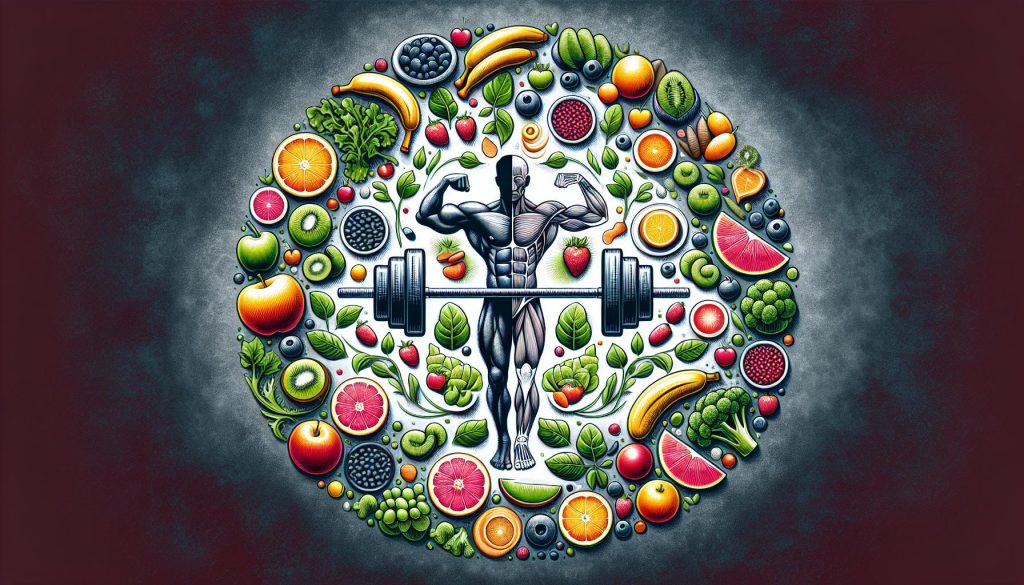
An Appetite for Achievement: Improving Muscle Strength Through Diet
Are you seeking a solid strategy to successfully strengthen your sinews? The answer lies in your diet. Indeed, if you’re pondering the question, “How can I improve muscle strength through diet?” then you’ve hit the sweet spot. Nutrition plays an essential role in boosting muscle power and can lead to astounding achievements in your strength training efforts. In this comprehensive guide, we will unwrap the various dietary secrets that help drive muscle strength, discuss the right ratio of nutrients, and debunk some common misconceptions that often confuse and confound fitness enthusiasts. So, brace yourself for a buffet of valuable information that will serve as a delicious recipe for muscle strength.
Protein Powerhouse: The Building Blocks of Muscle
Add the right amount of ‘oomph’ to your meals by packing them with protein. This nutrient acts as a building block for muscle tissue growth and repair. Including lean meats like chicken or turkey, fish, eggs, and plant-based sources such as lentils, tofu, and chickpeas are excellent ways to infuse protein into your diet. These protein-packed ingredients not only taste terrific, but they also turbocharge your muscle strength endeavors.
Timing the Protein Peptide Party
Surprisingly, it’s not just the ‘what,’ but the ‘when’ that matters in this story. The optimal assimilation of protein in your body is best achieved by spreading protein intake throughout the day, rather than concentrating it in a single meal. Think of it as throwing a well-paced, all-day long party for the peptides. Not only that, having protein after a workout can help maximize muscle repair and growth.
Carbohydrates: Not the Culprit
Despite being relentlessly rebuked by rigorous fitness regimens, carbohydrates are far from being the arch-nemeses of muscle strength. On the contrary, carbs serve as the body’s primary and preferred source of energy, helping you push through those tough training sessions with exceptional vigor. Whole grains, fruits, vegetables, and legumes are all excellent sources of complex carbohydrates.
Complex, Not Confusing
Don’t allow the carbohydrate chaos to cloud your judgement. The key is to favor complex carbs over simple sugars. While simple sugars can cause a spike and crash in energy levels, complex carbs provide a steady stream of fuel to your body and muscles.
Fats: Fueling Your Fitness Fire
Fats have long been branded as the bad boys of the dietary world. However, the right types of fats can be fantastic fuel for your fitness journey. Monounsaturated and polyunsaturated fats, found in fish, nuts, seeds, and olive oil, can provide slow-burning energy during low-intensity workouts, helping improve your muscle strength and endurance.
The Skinny on Saturated Fats
While it’s true that some fats fan the flame of fitness, it is necessary to steer clear of saturated and trans fats. These stealthy villains often lurk in processed and fried foods, leading to unwanted weight gain and hindering muscle strength progress.
Bidding Adieu to Muscular Misconceptions
Let’s drop the dumbbell on some deep-seated dietary dogmas that divert dieters down a dead-end street. Firstly, starving yourself or skipping meals will not spur on muscle strength. Similarly, overemphasizing just one group of food, like protein, at the expense of others can lead to nutritional imbalances that might hurt rather than help your strength-building efforts.
Busting the Bulking Myth
Another common myth circling the circuit is that bulking up with copious amounts of food will consequently build muscle. This approach could lead to weight gain of the wrong kind. Instead, aim for a balanced and moderate increase in daily calorie intake from a variety of nutrient-dense foods.
Feasting Your Way to Fierce Fitness
Achieving muscle strength is not solely about sweating it out in the gym; it also involves savoring the right foods. Take a balanced approach to diet, ensuring you incorporate protein, carbohydrates, and healthy fats while steering clear of nutritional red flags. Now that you are empowered with the knowledge necessary, you are well on your way to dig into diet-based muscle strength improvement.
Frequently Asked Questions
1. Can diet alone build muscle strength?
– While diet plays a crucial role, a combination of strength training exercise and proper nutrition yields the best results for muscle building.
2. Is protein the only important nutrient for muscle strength?
– No. While protein is key in muscle tissue repair and growth, carbohydrates, and fats also play significant roles in providing energy for workouts and promoting overall health.
3. Is eating a lot of food equivalent to gaining muscle?
– Not necessarily. Excessive caloric intake without an equivalent or greater energy output in physical activity may result in fat gain instead of muscle.
4. How much protein should I consume for muscle strength?
– Guidelines suggest consuming between 1.2 to 2.0 grams of protein per kilogram of body weight per day for those involved in regular strength training.
5. Should I avoid fat for muscle building?
– Not all fats. Healthy fats such as monounsaturated and polyunsaturated fats can provide much-needed energy during workouts, supporting muscle-building efforts.



